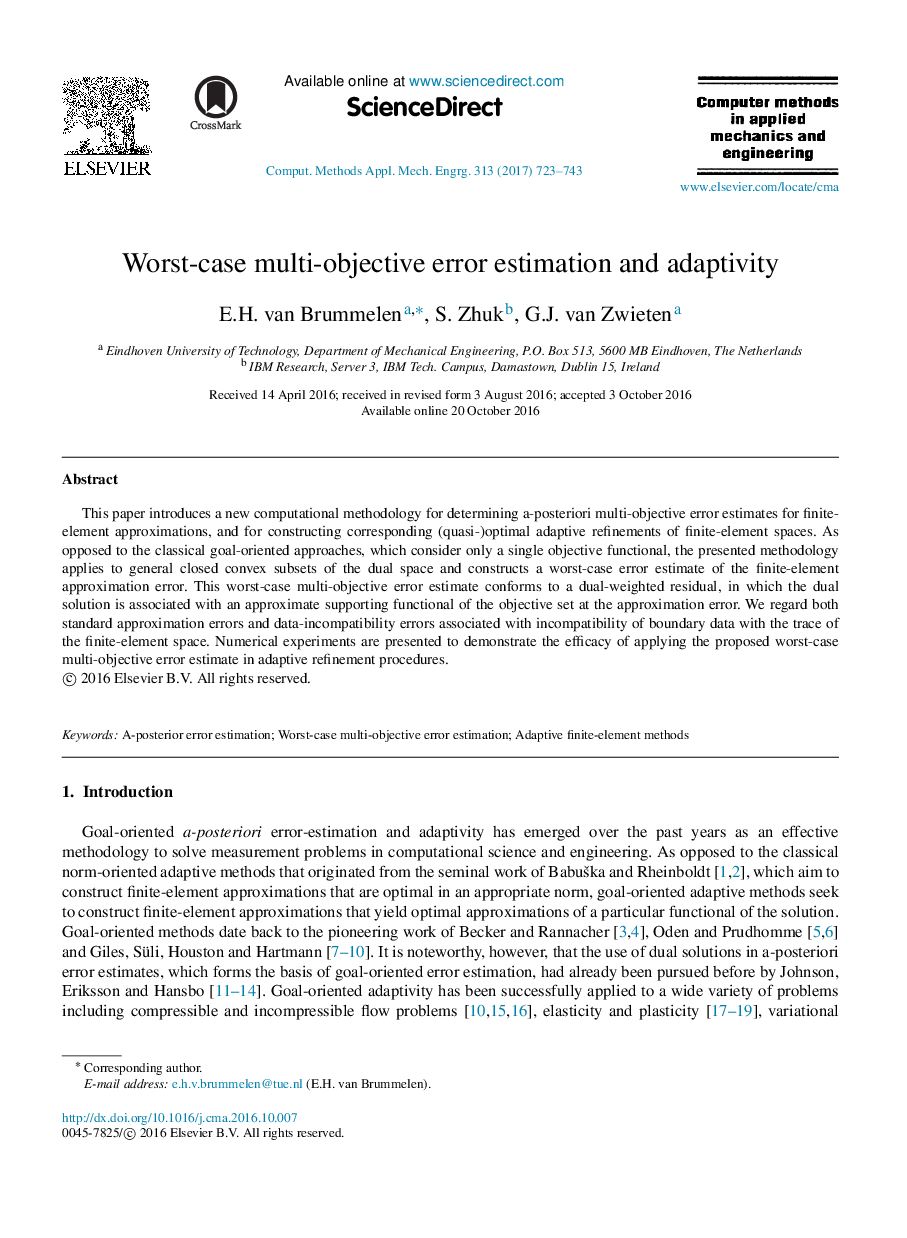| Article ID | Journal | Published Year | Pages | File Type |
|---|---|---|---|---|
| 4963935 | Computer Methods in Applied Mechanics and Engineering | 2017 | 21 Pages |
Abstract
This paper introduces a new computational methodology for determining a-posteriori multi-objective error estimates for finite-element approximations, and for constructing corresponding (quasi-)optimal adaptive refinements of finite-element spaces. As opposed to the classical goal-oriented approaches, which consider only a single objective functional, the presented methodology applies to general closed convex subsets of the dual space and constructs a worst-case error estimate of the finite-element approximation error. This worst-case multi-objective error estimate conforms to a dual-weighted residual, in which the dual solution is associated with an approximate supporting functional of the objective set at the approximation error. We regard both standard approximation errors and data-incompatibility errors associated with incompatibility of boundary data with the trace of the finite-element space. Numerical experiments are presented to demonstrate the efficacy of applying the proposed worst-case multi-objective error estimate in adaptive refinement procedures.
Related Topics
Physical Sciences and Engineering
Computer Science
Computer Science Applications
Authors
E.H. van Brummelen, S. Zhuk, G.J. van Zwieten,
